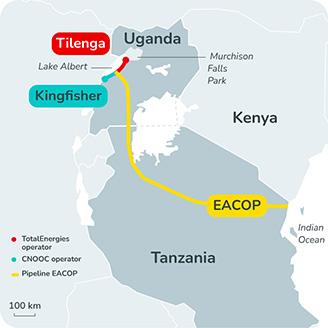MICHAEL JJINGO: A cashless society is possible
In recent years, there has been a gradual shift towards going cashless. This is something that is impacting every society around the world. However, in developing countries like Uganda, this transition has become a layered one.

Cash is king! We continue to hear and see cash carried in sacks; cash stolen from cars at car washing bays, as our gallant leaders travel with colossal amounts of money. Let me not comment about those who lose money in their ceilings, under their beds, cash frauds and leakages happening in institutions or even instances where security searches confirms billions kept in some homes, and land purchases with huge sums of money. A cashless society is one in which cash, in form of physical bank notes and coins, is unaccepted in any financial transaction.
In recent years, there has been a gradual shift towards going cashless. This is something that is impacting every society around the world. However, in developing countries like Uganda, this transition has become a layered one. As influenced by the divide that separates people when it comes to access to both technology and financial services, the need for inclusive digital transformation is essential.
Even though Uganda has a large segment of the market that is unbanked and underserved, research has shown that 75% of people have executed at least one digital payment. This signifies the massive potential of going cashless. Retailers abroad like Woolworths, M&S and Starbucks have already gone cashless at some of their outlets. Despite the general uproar surrounding this, the retailers have done so based on data analysis that reflects their customers’ preferences for doing so. Regardless, this is a bold move, demonstrating a commitment to a more digitally-driven future that reflects the convenience of cashless.
But more than simply providing a better experience, cashless helps reduce the administrative burden, the cost of and security risks associated with handling cash. Cash management is troubled with challenges, from the logistics of handling physical money to the dangers posed by cash-in-transit heists – something that has become very prevalent. Cash in hand is prone to abuse by the entrusted staff comparing to a cashless system where they do not engage with money.
No matter the reason, education plays a critical part in the transition to cashless. This requires changing people’s mindsets and alleviating any fears they may have when it comes to digital transactions. For instance, people must understand the benefits of carrying a single card instead of cash, a mobile wallet instead of cash, and the simplicity and security it brings. This does not even reflect alternative payment methods such as accepting payment at agent positions or a device on a smartphone or making payment with other solutions like digital wallets and QR codes.
Another often-cited concern when it comes to going cashless is the infrastructure required to do so. However, the costs and risks associated with maintaining a cash-based system are arguably higher. The key to a successful transition lies in ensuring that Ugandans have some form of relationship with a financial institution. This can be one of the traditional banks or a fintechs that have launched in recent years. But once the relationship is in place, much of the required infrastructure to go cashless is already there. This may not be the case for wallets run by businesses like hospitals or supermarkets!
Tax is another concern for those hesitant to go cashless. While cash transactions can sometimes allow traders to avoid tax, digital transactions make it much harder to avoid tax obligations. This brings more transparency and fairness to the economic system. If people are concerned with ‘government monitoring their transactions’, then chances are those transactions might not all be above board.
When it comes to true digital transformation to embrace the cashless journey, it comes down to creating a more empowered future for everyone. We certainly have to deploy financial literacy for our illiterate and underprivileged to cope. It does not mean completely abandoning cash. Rather, it entails educating people on the digital platforms and solutions available to them.
Cashless societies have existed from the time when human society came into existence, based on barter trade and other methods of exchange, and cashless transactions are equally possible today. The next evolution of financial systems is cashless. We should no longer imagine that we shall pay our transactions without cash. True, cashless transactions and elimination of cash costs can also be advantageous to poor individuals and small businesses.
Well, as much as a rush to cashless may have challenges of financially excluding some, or risks of exploitation, it is the way to go. Because cash is essentially untraceable, it is used by criminals, yet digital currency is less easy to exploit, and can be shut down. Let’s not forget the expensive to handle notes and coins get replaced by efficient electronic payments initiated by various cutting-edge technologies.
The writer is the General Manager Commercial Banking at Centenary Bank







